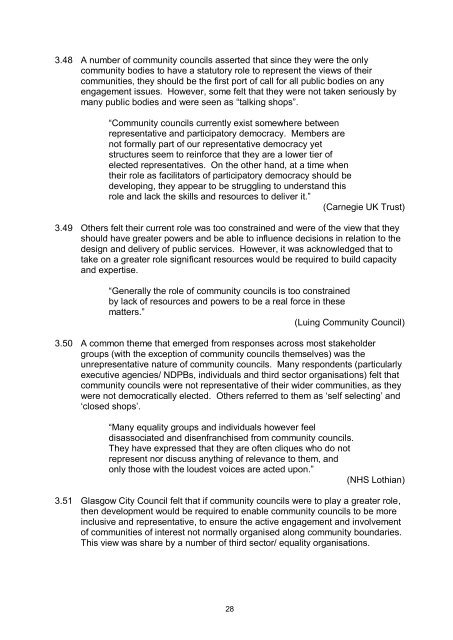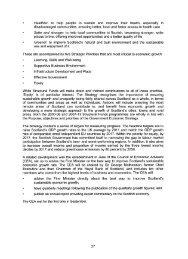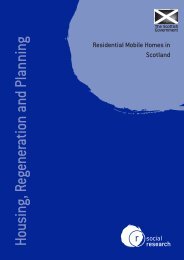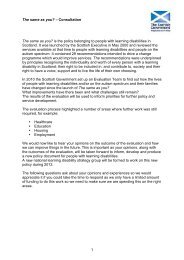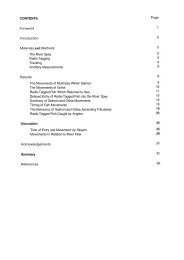Consultation On The Proposed Community Empowerment - Scottish ...
Consultation On The Proposed Community Empowerment - Scottish ...
Consultation On The Proposed Community Empowerment - Scottish ...
Create successful ePaper yourself
Turn your PDF publications into a flip-book with our unique Google optimized e-Paper software.
3.48 A number of community councils asserted that since they were the only<br />
community bodies to have a statutory role to represent the views of their<br />
communities, they should be the first port of call for all public bodies on any<br />
engagement issues. However, some felt that they were not taken seriously by<br />
many public bodies and were seen as “talking shops”.<br />
“<strong>Community</strong> councils currently exist somewhere between<br />
representative and participatory democracy. Members are<br />
not formally part of our representative democracy yet<br />
structures seem to reinforce that they are a lower tier of<br />
elected representatives. <strong>On</strong> the other hand, at a time when<br />
their role as facilitators of participatory democracy should be<br />
developing, they appear to be struggling to understand this<br />
role and lack the skills and resources to deliver it.”<br />
(Carnegie UK Trust)<br />
3.49 Others felt their current role was too constrained and were of the view that they<br />
should have greater powers and be able to influence decisions in relation to the<br />
design and delivery of public services. However, it was acknowledged that to<br />
take on a greater role significant resources would be required to build capacity<br />
and expertise.<br />
“Generally the role of community councils is too constrained<br />
by lack of resources and powers to be a real force in these<br />
matters.”<br />
(Luing <strong>Community</strong> Council)<br />
3.50 A common theme that emerged from responses across most stakeholder<br />
groups (with the exception of community councils themselves) was the<br />
unrepresentative nature of community councils. Many respondents (particularly<br />
executive agencies/ NDPBs, individuals and third sector organisations) felt that<br />
community councils were not representative of their wider communities, as they<br />
were not democratically elected. Others referred to them as ‘self selecting’ and<br />
‘closed shops’.<br />
“Many equality groups and individuals however feel<br />
disassociated and disenfranchised from community councils.<br />
<strong>The</strong>y have expressed that they are often cliques who do not<br />
represent nor discuss anything of relevance to them, and<br />
only those with the loudest voices are acted upon.”<br />
(NHS Lothian)<br />
3.51 Glasgow City Council felt that if community councils were to play a greater role,<br />
then development would be required to enable community councils to be more<br />
inclusive and representative, to ensure the active engagement and involvement<br />
of communities of interest not normally organised along community boundaries.<br />
This view was share by a number of third sector/ equality organisations.<br />
28


